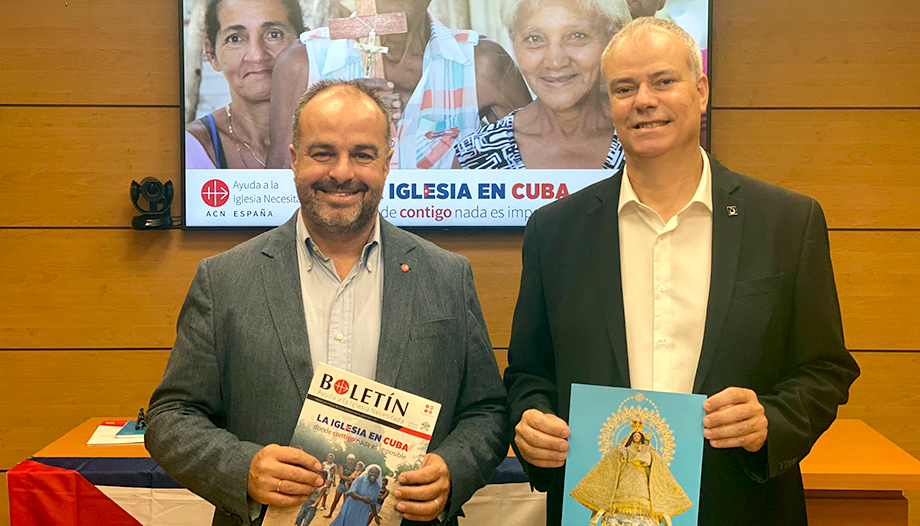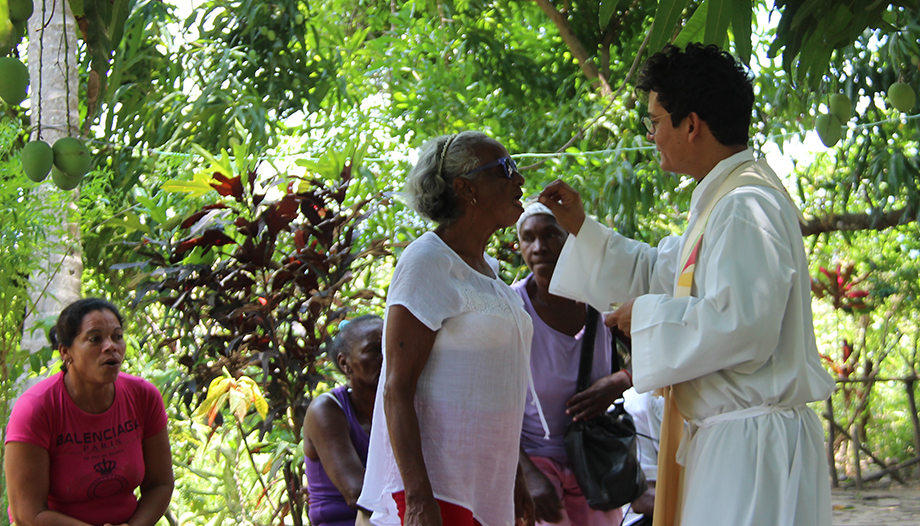"The Church in Cuba is a living, united and poor church," began the prelate, who joined the presentation of the campaign in favor of the Church in Cuba. A community that, as the bishop of Holguin wanted to emphasize, has developed its own spirituality based on four values: "the value of the little, the value of the small, the value of the anonymous and the value of gradualness, of the step by step".
All kinds of needs
Despite a slight improvement in some aspects, the life of the Church in Cuba continues to be marked by poverty and limitations of all kinds.
On the one hand, the shortage of priests and ecclesial structure in many places has led to a broad and fruitful participation of the laity in the life of the Church, but it also has more painful consequences, such as the impossibility of celebrating Mass in some places on a regular basis.
This is compounded by a deteriorated vehicle fleet that makes it difficult for priests and religious to move around the island, the almost impossible task of preserving buildings and the lack of publications and other means necessary for catechesis.
Despite the difficulties, the president of the Conference of Catholic Bishops of Cuba has pointed out that the Cuban ecclesial community is "active, creative and hopeful".
It is not enough to be a believer, you must be a disciple.
Bishop Emilio Aranguren also wanted to point out some of the key challenges of the Church in Cuba. The first of these, he emphasized, is to revive and maintain the "witnessing presence, coherent in living the Gospel". At this point he wanted to recall and value the perseverance in the faith of so many elderly people who "are the express testimony of the Faith that motivates this lifestyle with righteousness".
Bishop Aranguren stressed the importance of caring for families and especially for young people, who make up the majority of the country's exiles. For this witnessing presence it is necessary, therefore, "a centrality of Christian Initiation" in the life of the Cuban Church.
Together with this presence, the bishop of Holguin pointed out the importance of the pastoral plan that the Church has in Cuba in which the objective is the other, the neighbor and, finally, the need for a proclamation of Christ that generates a new life.
These three challenges are supported, especially, by the lay community, very active in Cuba, who carry out an enormous evangelizing work of first line in the so-called mission houses. A panorama that demands from Catholics a strong commitment of life: "It is not enough to be a believer, you have to be a disciple", summarized Bishop Aranguren. An example of this commitment of the laity was personalized by Miguel Angel Fernandez, a Cuban, permanent deacon, exiled in Spain for 24 years, but very attached to his homeland and who narrated, in first person, his experience of the dedicated work of many lay people in the various Cuban communities.

ACN's campaign
The campaign launched by Aid to the Church in Need to support the church community in Cuba is, in the words of the director of ACN Spain, José María Gallardo100% pastoral. First with prayer, because, as they wanted to emphasize from the beginning of the presentation of the campaign, "without prayer the projects do not succeed", and also with concrete material help in the area.
With this new initiative, the pontifical foundation wants to support the laity through projects such as the financing of 2,000 publications for catechesis or the organization of training workshops for parish leaders, liturgists and Eucharistic ministers in the diocese of Pinar del Río.
In addition, for the priests, ACN will order more than 2,000 masses for priests in the Holguin diocese, whose stipends will help support the priests. There are only 374 priests and 27 seminarians in the entire country, or one priest for every 20,872 people.








